Student Blog
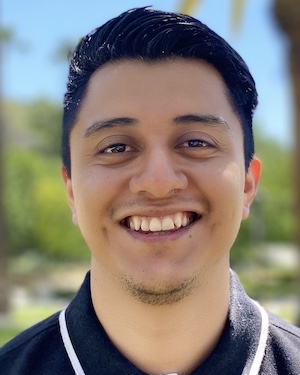
Electives During the OTD Program ⟩
February 5, 2021, by Daniel
This Fall I was feeling burnt out towards the end of the semester. It was my first OTD semester with classes being virtual and it was my first time being the only OT at my site (primary care clinic). Many times, I was just trying to keep up with my assignments and residency demands. During the month of October, I began looking at what classes I would be taking for the Spring semester, but it was all just too stressful, and I kept pushing it back. My bi-weekly check ins with my faculty mentor and clinical preceptor helped with brainstorming ideas for potential electives to take in the Spring. The idea of getting to choose courses that interest me and plan my own schedule sounded refreshing. I began to look for electives outside of the OT department since I’ve never had the opportunity to take a class in another department.
Taking the advice from my check ins and further understanding the needs of my residency population, I decided to look for electives in gerontology, policy, and pain medicine under the Keck School of Medicine. Eventually, I came across several exciting opportunities to take as electives but not enough units because of the 2 additional elective units I took during the Master’s program. Remember that during the OTD program you can take 4 units of electives (unless you took extra elective units as a USC Master’s student). For students starting their OTD in the fall, in the Spring semester you will also be taking OT 621: Occupational Therapy Leadership: Contemporary Issues (4 units).
Since the beginning of my residency training our focus has been supporting clients with uncontrolled diabetes and hypertension. I also had the opportunity to provide short consultations, with one of the highest requests being for chronic pain. Clients on our active caseload will often request support with pain management as well due to diabetes complications such as neuropathy and other comorbidities that cause pain, making it harder for them to engage in their health management and daily occupations. Given this need and while doing further research, I decided I wanted to use my 2 elective units to learn more about pain and better support my clients. After reaching out to Keck faculty to get clearance for pain medicine courses, I enrolled in PAIN-704: Pain and Society: Epidemiology and Cultural Issues and PAIN-720: Physical and Occupational Therapies. PAIN 704 is a course focused on exploring societal issues related to pain and pain management such as culture, ethnicity, caregiving, social and psychological factors. PAIN 720 is a course focused on discussing different OT and PT techniques to assess and treat chronic pain.
The first week of January I had a check-in with Dr. Sarah Bream, our OTD Program Director. During our meeting I shared with her my desire to take MDED-511: Immigrants, Illness, and Narrative Medicine (4 units), but not having enough units. MDED 511 is a course that examines immigrant experiences in the U.S. through the lens of narrative medicine, aimed to deepen students’ understanding of critical issues affecting immigrants in the U.S. and develop skills to better serve immigrant communities and populations in healthcare and other social services. I shared with her my passion to increase my knowledge and skills to better serve immigrant communities during my residency and in my career. Dr. Bream was very receptive of my ideas and even provided additional advice to work on for my OTD portfolio. She shared with me that on a case-to-case basis, exceptions could be made to substitute OT 621 with another course. I was really surprised but excited to hear this because that meant I could take the MDED 511 course. I truly appreciated her help with problem solving, finding a way to shape my OTD experience, and taking care of the necessary paperwork to make the change.
I am now three weeks into my Spring semester, and I am feeling refreshed (after Winter Break), more confident in my clinical skills, and looking forward to my electives expanding my knowledge. I wanted to share my experience choosing electives during the OTD because if you are feeling unsure about what to take or simply don’t have enough units to take certain courses, I encourage you to reach out to Dr. Bream, your faculty mentor, classmates, the student ambassadors, or even former students because unless you ask, you may not know about the different ways that you can customize your learning experience.
⋯
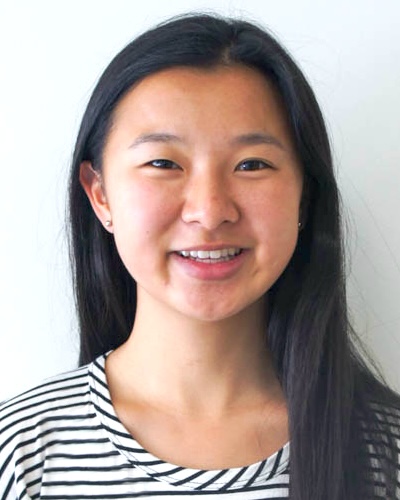
Welcome to the Waiting ⟩
February 3, 2021, by Bethany
Hello to all of our undergraduate applicants who have now reached the Waiting: that awkward time in between application submission and decision where the choice is out of your hands. All admissions processes, whether for undergrad or graduate school, have that awkward, breath-holding Waiting. You’ve spent months trying to paint the perfect picture of yourself for each counselor that reads your personal statement. You’ve looked at schools and maybe you have that one ideal school in mind. You’ve hit the submit button. And now what? Whatever thoughts or expectations we have about our future education, we all at some point get stuck in the Waiting. So as you’re sitting trying to picture what the next four years of your life may look like, here are a few tips to remember.
- Breathe — With applications in, breathe in. Now, breathe out. You did it! You submitted! Good job! You’ve done your part, and now look at all this new time that you have gained! Take a breath and bake cookies or go for a night drive. Go back to your favorite activities, or find a new one. Or you can always spend more time studying for all those AP classes that you decided to take senior year . . .
- Celebrate — You have done your best, written your best, and put on your best show. Take time to eat some ice cream, since it’s hitting 80 degrees here in LA, or drink hot chocolate and watch a movie.
- Commiserate — Remember that other students are also waiting! Find your other friends who are in the same boat. Wait together, and rant together, if you need to. Remember that wherever you are in this journey, you’re not alone.
- Ask — If you still have questions about the college experience, use the time to reach out! Email me at .(JavaScript must be enabled to view this email address) if you want to ask me questions about OT undergrad life. Take an undergraduate virtual tour. Stay updated on the undergraduate Admission Blog to learn more about the “Now what?”
- Be present — The phrase “be present” is used frequently among my friend group. But it always takes a moment for the real meaning of the phrase to sink in. As you go throughout your day, be present in the moment. Yes, you can think about your future, but don’t let those worries take away from what you’re living right now. Make some good memories. Now is as good a time as any.
So. Welcome to the Waiting. Just remember, the Waiting doesn’t last forever. Your path may end up looking different than you expected. But know that somehow, someway, you’ll end up where you need to be.
⋯
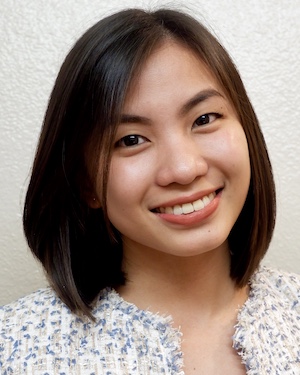
10 Things I Like About Being a Student Ambassador ⟩
January 29, 2021, by Yna
Getting Involved International
We recently conducted an information session about the student ambassador position, which made me look back and reflect upon my experience thus far as a student ambassador—and I came up with a list of 10 things that I like about being one!
- Forming connections with a lot of people — For the most part, being a student ambassador is really about connecting with different people: from prospective students, current students, alumni, clinicians, faculty, and staff. Whether it is to answer a prospective student’s question during an info session/career fair, or to gather my fellow classmates’ opinions, or to ask for a clinician’s expert advice, every interaction is unique and helps me broaden my perspective about different matters.
- Being of help to prospective students — Not too long ago, I was also in the position of being an applicant which I know could feel overwhelming, especially if you’re coming from a different country like myself. I remember having feelings of anxiety because the whole application process was pretty novel to me, not to mention a whole lot other things to take into consideration such as housing, scholarships, and financial aid. Being a student ambassador allows me to be of assistance to students who find themselves in this position by sharing my experiences—tips on what I’ve found helpful, what not to do, who to reach out to, and other helpful resources I can provide them.
- Having lots of opportunity to be creative — I work closely with Lamoni in managing USC Chan’s pages; and having to create content for social media indeed opens up lots of opportunities to bring creative ideas to the table. This goes starting from planning out what content to publish, to designing eye-catching posts, to crafting interesting captions; and in general just always being open and thinking about new ideas.
- Sharing thoughts and experiences (mine and my fellow students’) — Writing blogs, for me, has been a time to sit down, pause, and think: about interesting things that have happened, about what kind of information students need at this time, or about how can I represent students in the division and share their experiences as well. It is particularly enjoyable for me whenever I get to work on projects together with my classmates in the program such as when I created a fun video about winter break occupations, because I feel like I was able to take a peek at what everyone’s been up to while we weren’t together in class, which I get to share with other readers too.
- Working with other amazing student ambassadors — I have had so much to learn from being around the other 6 talented student ambassadors who each possesses unique skill sets. Although we each have our own ambassador duties, a lot of the tasks inevitably overlap with each other, which allows us to partner with one another and share responsibilities. I consider myself lucky to have found an amazing support system within the recruitment team who are all very supportive and willing to help each other out.
- Enhancing my skills and discovering new ones — Being a student ambassador has given me so much opportunities to create and compile videos which greatly contributed to the improvement of my skills. Before coming to USC, I decided to learn how to edit videos just for fun and started creating short travel vlogs. I’m glad to have been able to utilize this skill, this time for various events around the division. I mean, I still have so much to learn and improve on but I’m definitely better than when I first started! =)) Moreover, since a lot of the ambassador work involves getting in touch with different people, this has helped me, over time, be more comfortable communicating with other people whether personally or through other virtual platforms. Finally, I’ve also learned to do new things such as utilizing and managing different platforms to organize online meetings for info sessions, create RSVP forms, and send out post-event surveys through the help of other student ambassadors who are well-versed when it comes to these matters.
- Challenging my comfort zone — One of my major inhibitions when I was just about to apply for the student ambassador position was that public speaking is not really my strong suit. While up to this date it still isn’t, I have managed to organize and host a couple of international info sessions together with a few guest panelists from different countries. This part of the job is probably what really scared me the most, but I’m glad that I was able to push myself out of my comfort zone, which I believe is a very important first step!
- Improving my time management skills — Given that enrollment in the MA program is full-time, having to work part-time really requires a great deal of time management skills for you to be able to achieve a balance not just between work and school but also leisure! I have learned strategies to spend my time wisely and be more organized in scheduling my work and school tasks. More importantly, I have also learned to ask for help from my team whenever the load gets too much to handle—one thing that our supervisor Kim always reminds us to do, as our well-being should always come first.
- Supporting the admissions team — A few student ambassadors including myself have taken part in certain steps of the admission process. During this time, we have worked closely with Dr. Anvarizadeh, our director of admissions, as well as the whole admissions team, wherein I have witnessed the hard work that they all do to support and advocate for the community. It inspired me to be the change I want to see, as Dr. Anvarizadeh has always reminded us.
- Being able to attend events — One of the fun parts of being a student ambassador is getting to be part of various events in the division! For example, I have provided support for Bianca Ojeda, our special events program coordinator, in hosting the virtual holiday party for the Chan division last year. I enjoyed facilitating games for the Chan faculty members and staff and seeing them having a fun time while in their holiday outfits.
To wrap everything up, being a student ambassador overall enriches my USC student life experience. It is a great opportunity that I am glad to have taken, albeit my hesitations as a new and international student coming to LA.
For those of you who might be interested to apply as a student ambassador, you can send an email to my supervisor Kim Kho at .(JavaScript must be enabled to view this email address), the deadline to apply is on February 19th at 3:00pm. You can also check out Liz’s blog to know even more about the work as a student ambassador. As always, feel free reach out to me and I will be happy to answer any further questions! 😀
⋯
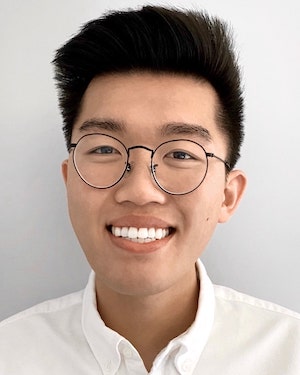
Humans of USC Chan Volume 2 ⟩
January 25, 2021, by Calvin
Diversity Getting Involved Videos What are OS/OT?
Did you know that you can major in occupational therapy as an undergraduate student at USC? The Chan Division currently offers an accelerated program, known as the Bachelor’s to Master’s Program, where undergraduate students can earn their master’s degree in occupational therapy with just one additional year. I believe that the BS-MA students have very unique experiences to share, especially as individuals who committed to the profession so early on.
So, I invited some Bachelor’s to Master’s students to come and talk about how they discovered occupational therapy! On top of that, we discussed topics related to their favorite experiences, extracurricular involvement, differences being in an accelerated program at USC, and advice for students who might be interested in the program! If you watch it through YouTube, the video is time-stamped with each topic in case you ever want to go back to a specific conversation.
I hope you find this video helpful and that these diverse perspectives give you more insight into what student life is like in the Bachelor’s to Master’s program! Welcome to the Humans of USC Chan!
⋯
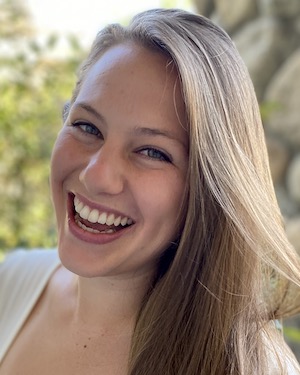
Advice for Incoming Occupational Therapy Students ⟩
January 21, 2021, by Savi
Classes Fieldwork Getting Involved Life Hacks
Before beginning my journey as a student in the Entry-Level Master’s program, I remember being extremely overwhelmed. I, therefore, wanted to dedicate this blog to giving incoming students some advice I wish I would’ve known. To those who will be receiving their acceptance letters soon . . . congratulations on this huge achievement! I hope you keep these pieces of advice with you throughout your time at USC.
- A’s aren’t everything. Although it may be ingrained in you that grades are what measure your level of success, you must now focus more on the learning process instead of the grade outcome. The deciding factor for whether you will get hired over another candidate is your ability to be personable, your experience in the field, and the skills you are equipped with. You made it here, so now you can breathe and just focus on passing and learning all that you can! I speak more about this in my blog An A+ Doesn’t Define You, so be sure to visit this blog for more information.
- Lean on your classmates. This master’s program is not a competition so do not try to make it one. Your fellow classmates are most likely struggling with the same or similar things as you, so reach out to them and be honest. You will find that developing a study group can be VERY beneficial for your mental wellbeing as well as your ability to retain information. By saying things out loud, explaining a concept to a classmate, or hearing your classmate explain a concept to you in their own words, you will find yourself memorizing everything you need or want to know without having to study alone. This is also good practice for the clinical setting as you will be required to work with a variety of colleagues who have different strengths and weaknesses than your own. You can learn how to not only work together but also uplift each other. Build that foundation of support so that studying becomes easier and your coursework has more meaning.
- Take all the time you need to decide what organizations you want to join. Time is valuable in this program and you must make the most of it. Although it may be tempting, try not to join every single organization that you may be slightly interested in. Take your time learning about each opportunity and commit yourself to one or two. Throughout your two years, a variety of opportunities will arise for you to take advantage of. For example, becoming an ambassador was an opportunity that presented itself at the end of my first year in the master’s program. You want to give yourself enough time to fully engage in the organizations you choose to join, while also leaving time for future opportunities that may become available later on. Pick things because you are passionate about them not because they will look good on a resume. To learn more about the student organization options check out my blog What Student Organization Should I Join?
- Get to know your professors. The faculty members in the Chan Division are unbelievable. Each professor or instructor you will have is passionate about a different topic. Learn and ask about their passions and their experience pursuing OT in their field of choice. Most of their journeys were not straightforward and many may surprise you. This is an incredible opportunity to learn from some of the most distinguished OTs in the world . . . so take advantage of it. Ask them questions both inside and outside of the classroom and build relationships with them. These professors can and will be your mentors for the rest of your life.
- Be open to any opportunity that may come your way. During your fieldwork I clinical experiences, you will get the chance to practice OT once a week in three different settings (mental health, pediatrics, and adult rehabilitation) throughout your two years in the master’s program. You will also have the chance to choose two of these settings to focus on for 12 weeks as a full-time fieldwork II student each summer. Although one or two of these settings may not be ones that you are extremely passionate about, you must take advantage of the learning opportunities you are given by the fieldwork team. Maybe the fieldwork placement will teach you how to deal with conflict, become an independent practitioner, listen more intently, or stay organized. You may even surprise yourself and fall in love with a practice setting you never expected to enjoy! Whether or not you can see yourself as a practicing OT in this setting, make sure to walk into each placement with an open mind and your best foot forward. If you do not do so, then you will not only waste your time but also the time and resources of the clinical setting that has allowed you to come and work with their patients. Instead, use these opportunities to build relationships with the practitioners around you and harness the skills needed to be successful in your future dream job.
- Schedule in time for revitalizing occupations. Whether these occupations are as exciting as going to the beach, hanging out with friends, or skateboarding, or as “simple” as showering and sleeping, be sure to find time for what makes you feel happy and more like yourself. You will not be able to succeed in this program unless you take care of yourself because you will quickly lose steam (take it from the girl who worked two jobs and barely slept for two semesters in a row). Your grades will begin to suffer but more importantly, your ability to retain important and valuable information, be present in class, and maintain your mental and physical health will most likely begin to deteriorate. If that means that you have to block off time in your schedule to shower, eat, go on a walk, or phone a friend to ensure that it is included in your daily routine . . . do it. You will thank me later!
⋯





